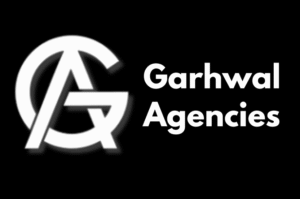In recent years, the rise of online mental health programs has made mindfulness more accessible than ever. Among the most effective of these is Mindfulness-Based Cognitive Therapy (MBCT)—a structured, evidence-based program that blends cognitive behavioral techniques with mindfulness practices. Whether you’re exploring MBCT for personal growth, to manage anxiety or depression, or as a healthcare professional seeking continuing education, understanding what a typical MBCT online course includes can help you decide if it’s the right path for you.
Let’s explore what you can expect from an MBCT online course—from its structure and content to the tools and practices it offers.
1. Foundations of MBCT: Understanding the Approach
An online MBCT course typically begins with an introduction to the principles behind the method. MBCT was originally developed to help individuals who suffer from recurrent depression stay well by recognizing and interrupting negative thought patterns.
You’ll learn about:
- The origins and scientific foundation of MBCT
- How cognitive therapy and mindfulness intersect
- The psychological mechanisms of relapse and recovery
- The concept of automatic pilot and how awareness interrupts it
2. Course Format: Structured but Flexible
Most MBCT online courses are structured across eight weekly sessions, modeled after the original format created by Zindel Segal, Mark Williams, and John Teasdale. Each session builds upon the last and introduces new practices, themes, and insights.
Although online courses may vary in format, they often include:
- Pre-recorded video modules for each session
- Live group sessions (optional or recommended) led by trained facilitators
- Interactive assignments and downloadable workbooks
- Practice reminders and journaling prompts
3. Mindfulness Practices
A core component of MBCT is learning and integrating mindfulness practices into daily life. These are not abstract concepts; they are practical tools you use every day to build awareness and reduce reactivity.
Common practices include:
- Body Scan Meditation – cultivating bodily awareness by slowly scanning attention across the body
- Mindful Movement – gentle yoga or stretching done with present-moment attention
- Sitting Meditation – focusing on the breath, sounds, thoughts, or bodily sensations
- Three-Minute Breathing Space – a short, powerful tool for grounding in the moment
4. Cognitive Exercises and Thought Awareness
Alongside mindfulness, MBCT includes cognitive tools that help you become aware of unhelpful patterns of thinking. These are often what maintain cycles of anxiety or depression.
In an online course, you’ll be introduced to:
- Thought record worksheets – tracking your thoughts and emotional reactions
- Decentering techniques – learning to see thoughts as mental events, not truths
- Awareness of early warning signs – identifying triggers and internal cues
- Behavioral experiments – testing the accuracy of negative assumptions or beliefs
5. Weekly Themes and Real-Life Integration
Each week in an MBCT course focuses on a specific theme. Some examples include:
- Week 1: Recognizing the present moment
- Week 2: Gathering the scattered mind
- Week 3: Mindfulness of the body and breath
- Week 4: Understanding patterns of avoidance and aversion
- Week 5: Allowing and letting be
- Week 6: Thoughts are not facts
- Week 7: How can I best take care of myself?
- Week 8: Maintaining and extending new learning
6. Support and Community Access
While MBCT is a personal journey, many online courses offer options to connect with peers or instructors for support and accountability.
You might find:
- Moderated discussion forums
- Live Q&A sessions with facilitators
- Email support from mindfulness teachers
- Optional one-on-one coaching or consultations
7. Course Materials and Resources
An MBCT online course generally includes downloadable and multimedia content that you can return to again and again:
- Guided audio meditations for daily practice
- Session summaries and worksheets in PDF format
- Reading materials (e.g., excerpts from The Mindful Way Through Depression)
- Progress tracking tools to reflect on growth over the weeks
8. Certification or Completion Credits (Optional)
Some MBCT courses—especially those offered through institutions or professional platforms—offer a certificate of completion or continuing education (CE) credits. This is especially valuable if you’re a mental health professional, therapist, or coach looking to integrate MBCT into your work.
If this is important to you, make sure the course you choose is offered by qualified teachers and aligns with your professional goals.
Final Thoughts
An MBCT online course is more than a series of meditations or therapy sessions. It’s a structured journey of self-awareness that helps you shift from reacting to responding, from spiraling to grounding. By combining proven psychological strategies with the power of mindfulness, MBCT empowers individuals to prevent relapses in depression and manage anxiety more skillfully.
Whether you’re seeking personal healing or professional development, the depth and structure of an MBCT online course can offer lasting value—anytime, anywhere. learn more here –https://breathzone.com
- What Does an MBCT Online Course Include? - Join an MBCT online course
- Mindfulness-Based Cognitive Therapy (MBCT) is a structured program that blends traditional cognitive behavioral techniques with mindfulness strategies.
- MBCT Online Course
Related posts:
 What Are the Key Considerations Before Getting Filler Injections?
What Are the Key Considerations Before Getting Filler Injections?
 Dr. Kami Hoss Gives Out the Truth About Brushing & Flossing-Protecting Your Teeth
Dr. Kami Hoss Gives Out the Truth About Brushing & Flossing-Protecting Your Teeth
 Can Atrial Fibrillation Be Cured? Latest Research & Insights
Can Atrial Fibrillation Be Cured? Latest Research & Insights
 Expert Lung Care in Jaipur: Why You Shouldn’t Ignore Breathing Issues
Expert Lung Care in Jaipur: Why You Shouldn’t Ignore Breathing Issues
 Control Fasting Blood Sugar with Confidence – Get Glycomet Online Today
Control Fasting Blood Sugar with Confidence – Get Glycomet Online Today
 Effective Weight Loss Clinic Killeen: Your Path to Lasting Results
Effective Weight Loss Clinic Killeen: Your Path to Lasting Results
 How to Prepare for Your Appointment with the Best Plastic Surgeon in dubai for Fillers
How to Prepare for Your Appointment with the Best Plastic Surgeon in dubai for Fillers
 Comment les analgésiques sur ordonnance se comparent-ils aux options en vente libre ?
Comment les analgésiques sur ordonnance se comparent-ils aux options en vente libre ?






